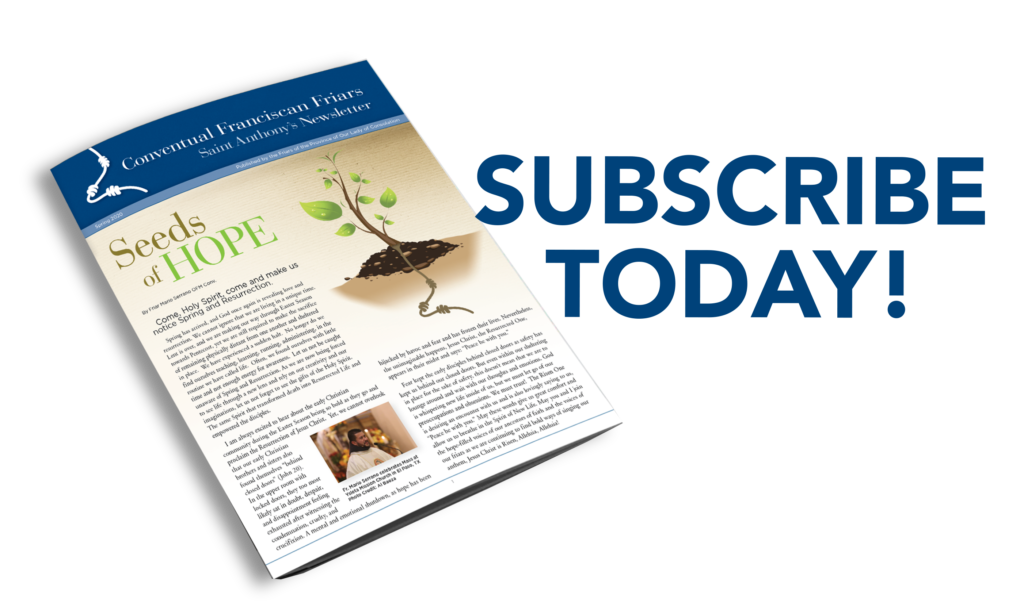By Friar Matthew Malek OFM Conv.
COVID-19 has created an unprecedented upheaval in the American culture, with over 200,000 fatalities, skyrocketing unemployment, and numerous changes to education, daily routines, and social interactions. As more data becomes available, the pandemic’s effects now reflect its enormous toll on mental health and exploding demand for new treatment options.
Many people experienced the psychological impact of COVID-19 as infections became prevalent, and lockdowns began. Fear of the unknown, uncertainty, social isolation, ambivalent statements by public health and government officials, and constant media coverage leads to high anxiety and depression rates among the general public. Those hardest hit were susceptible population groups, especially individuals with pre-existing psychiatric conditions and individuals who live in regions with high COVID-19 prevalence.
While lockdowns and restrictions have eased in some states, the psychological impact of the pandemic linger. U.S. Census Bureau released data in May, revealing that one-third of Americans reported signs of clinical anxiety or depression. The data was based on a survey conducted in a one-week period that drew 42,000 respondents. Alcohol and drug abuse have also spiked during the pandemic. According to research published by the Society for the Study of Addiction, people with addictive disorders are particularly badly affected due to poverty, physical and mental health vulnerabilities, and disruption of access to services. The pandemic may well increase the extent and severity of some addictive disorders.
In addition, physical distancing strategies critical for reducing the spread of disease may also increase the risk of loneliness and isolation that make addictions and mental disorders worse. They also increase the likelihood of suicide among higher-risk individuals. The Centers for Disease Control (CDC) note that suicide risk is higher among people who have experienced violence, including child abuse, bullying, or sexual violence. However, the risk of suicide during the pandemic can be lessened. Support from family and community, or feeling connected, and having access to in-person or virtual counseling or therapy can help with suicidal thoughts and behavior, particularly during a crisis like COVID.
These same supports can help individuals, regardless of the mental health reality they are confronting. As COVID-19 restrictions have eased, more counselors, physicians, and treatment programs have returned to in-office services. Telehealth is an option for many providers, and many can find support through online versions of their 12-Step meetings. Parishes have also opened up more, and many have online liturgies and resources to connect people to support. Likewise, parishes can be a great access point for help, as can family physicians and clinics.
COVID-19 can make recognizing and treating mental health issues more difficult but not impossible. According to an April 20 article from The New England Journal of Medicine, psychological symptoms will emerge for each person in a uniquely personal and social context that should be considered in developing a treatment plan. The key element is to reach out and get help.






